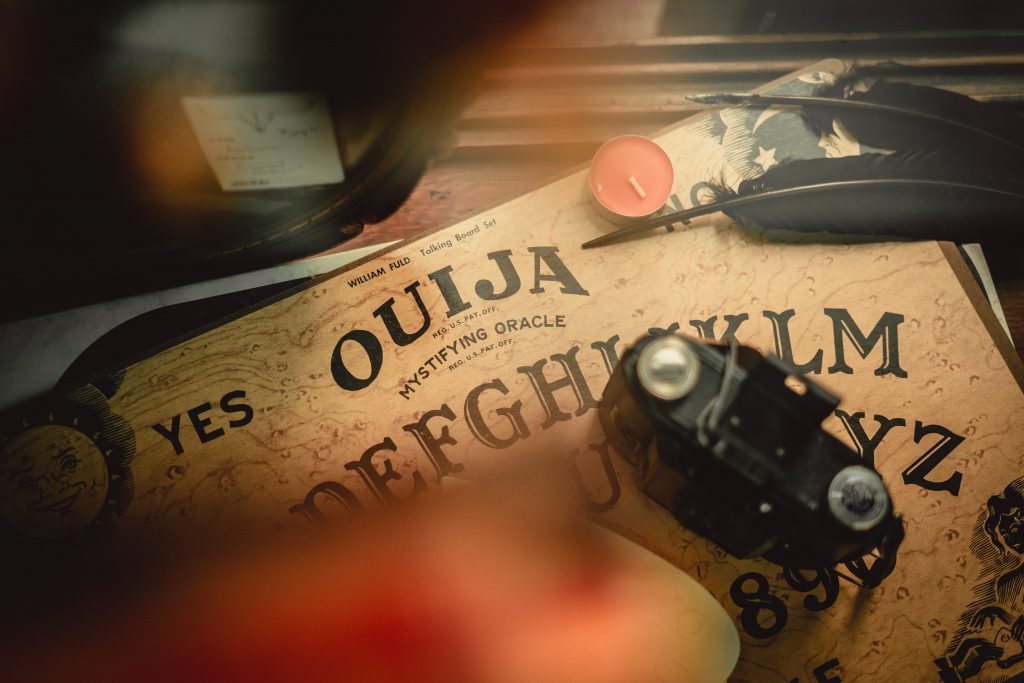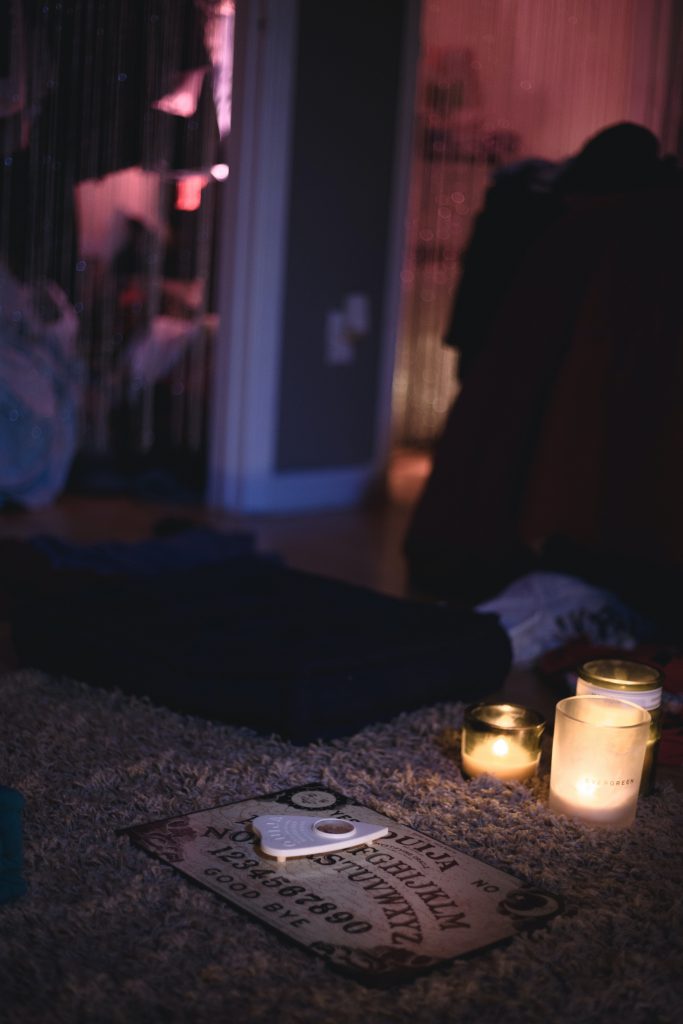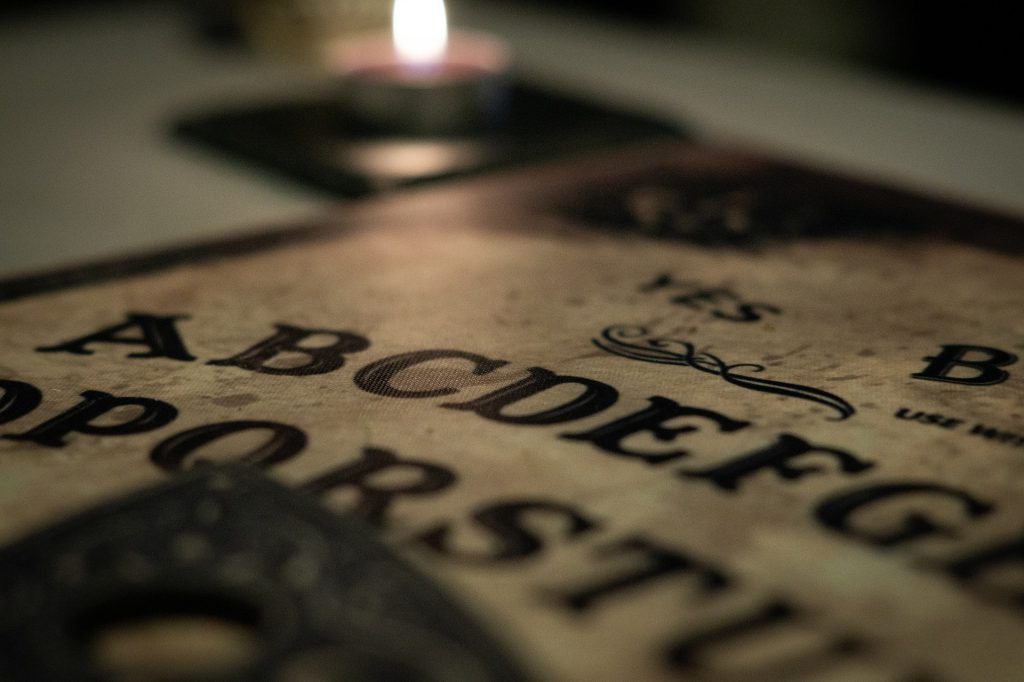Let me take you back. It’s the seventh grade and you’re at a slumber party. Odds are, a Ouija board is going to be involved at some point in the night (in addition to face masks, scary movies and a harmless prank or two). And while this game was undoubtedly part of your childhood, did you ever stop to wonder how Ouija began?

The precursors of spirit boards first emerged during the Song Dynasty in China around 1100 AD, with the first mentions of an automatic writing method via a board and planchette. They were used to connect with the spirit world until they were banned in the Qing Dynasty. Similar examples of spirit writing have also been recorded throughout parts of Europe and India.
Spiritualism flourished during the 19th century and talking boards came back with a vengeance, particularly after the Civil War when mediums were in high demand to reconnect clients with their deceased relatives. In 1890, businessman Elijah Bond decided to patent a planchette and board, then in 1901, William Fuld took over production of the boards. The name Ouija allegedly came about through the game itself and Fuld claimed that the name came from a combination of the French and German words for “yes.”
Ouija boards flourished in popularity during World War I and throughout the 1920s, thanks in part to spiritualist Pearl Curran. Curran used a Ouija board to contact the spirit of Patience Worth, creating several novels, poems and prose in collaboration with the spirit.

Throughout the 20th century, Ouija became ingrained in popular culture. One of the most prominent examples came through the 1973 film, “The Exorcist.” In this film, based on the novel of the same name by William Peter Blatty, a young girl named Regan uses a Ouija board and connects with a spirit named Captain Howdy. This leads her to become possessed by a demon and inspires an exorcism later on in the film. Throughout the horror genre, we’ve seen many other instances of Ouija boards being used by the characters, including 2007’s “Paranormal Activity,” 2014’s “Ouija” and 2016’s “Ouija: Origin of Evil.”
Today, Ouija boards continue to be used to this day both by kids and adults worldwide. The word “Ouija” is currently trademarked by Hasbro, although variations of spirit boards can be found throughout the occult industry.

What do you think of Ouija boards? Have you used one before? Did you have a paranormal experience? Let us know your thoughts on this story in the comments section on social media.



